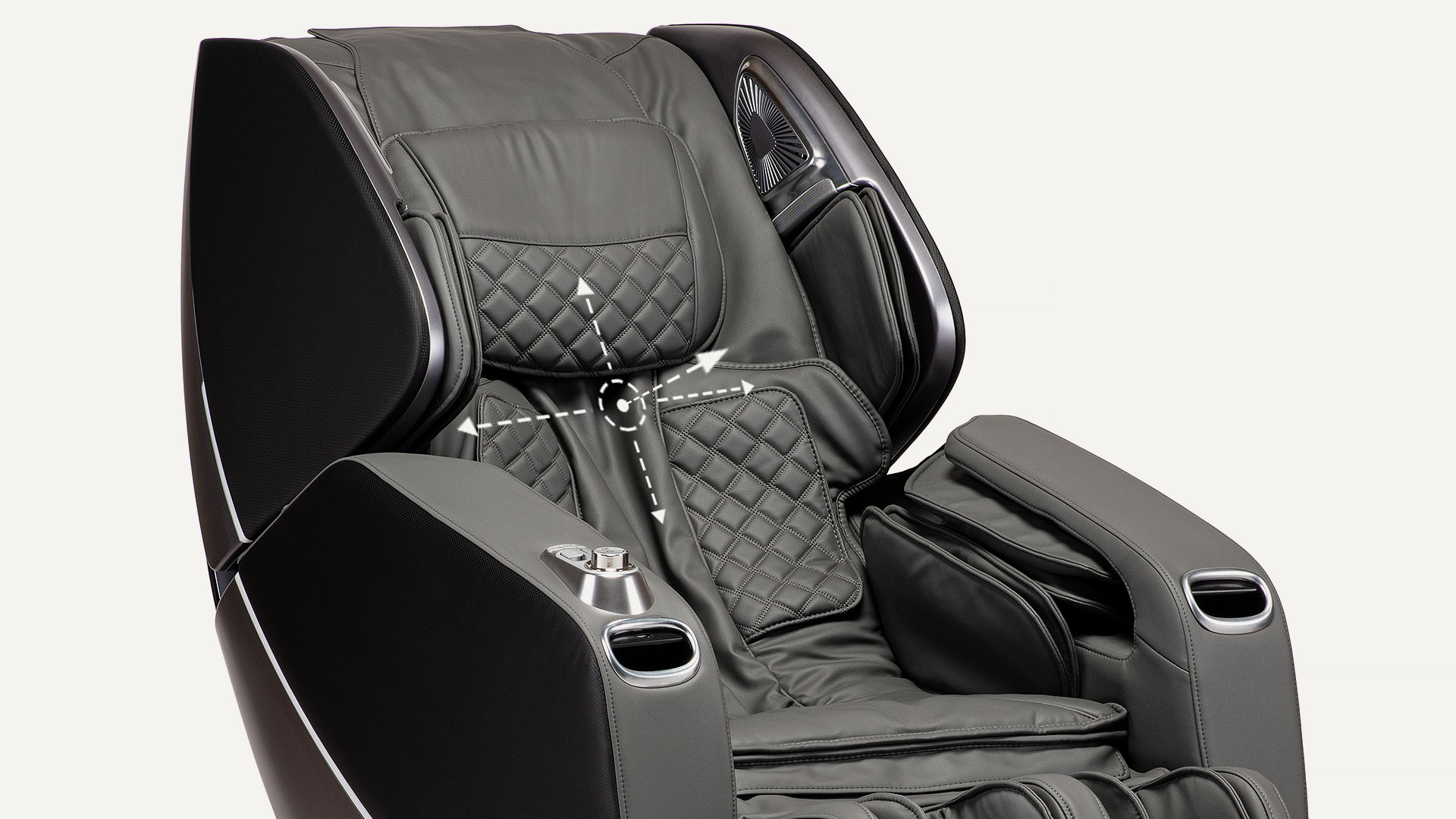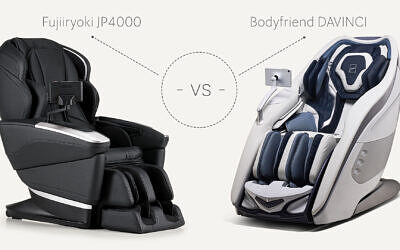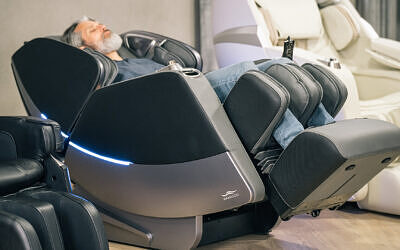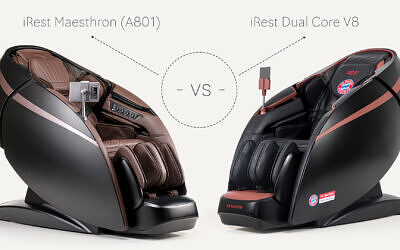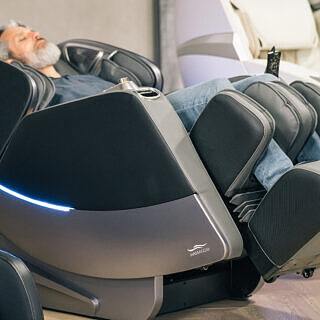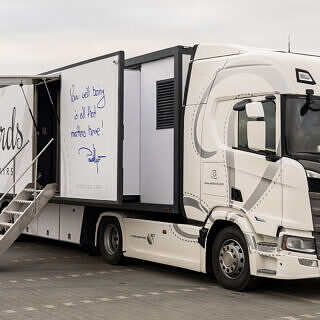Until now, we’ve primarily associated multi-dimensional technologies with TVs and cinema screenings. However, as it turns out, this technology has also made its way into massage chairs and what is more, it keeps evolving. In the video below, Paweł explains the differences between the individual “dimensions”, shows how the massaging arms move in each of them and demonstrates how this affects relaxation in a massage chair.
2D massage in a massage chair
In most massage chairs on the market, the massage arms move in the 2D system. This means that the massager is adjustable in two dimensions – up and down and side to side. Although there is no mechanically adjustable third plane or the ability to adjust the pressure force, the massage arms’ balls still move along the back. This is made possible by a well-designed mechanism.
3D technology in the massage chair
A more advanced technology is the 3D system, also known as the XD system (the name used by the Korean brand Bodyfriend). In massage chairs with this technology, the massager is adjustable in three dimensions.The massaging arms move along the entire length of the spine in an up-and-down, side-to-side direction and can also adjust their depth relative to the spine. The massaging arms take the natural curvature of the spine into account, thus going deeper at the lumbar level and moving away at the thoracic level.
4D – the fourth dimension in massage chairs
Massage chairs with the 4D system (referred to in Bodyfriend as XD PRO) are also available on the market. It was first introduced in one model from the Japanese brand Fujiiryoki but is currently used by many massage chair manufacturers around the world. The 4D system differs from 3D in that it additionally adjusts the rate of movement of the massage arms during the massage. This means that the massage mechanism does not work at a constant pace from the beginning to the end of the selected massage programme. It can, for example, move slower at the beginning, then accelerate at the right moment and then slow down again – it all depends on how the programme has been programmed. Appropriately programmed acceleration and deceleration of the massage arms are therefore the fourth dimension of massage here.
5D technology in massage chairs
Another innovation is the 5D system and its enhanced version, the 5D AI+, which can be found in the Fujiiryoki JP4000. This system is based on artificial intelligence, which, in addition to speed, also regulates the intensity of the massage and in real-time, adjusts to the user’s muscle tension. 5D makes the massage extremely accurate, effective and deceptively reminiscent of the touch of a professional masseur’s hands.
As you can see, the addition of more “dimensions”, makes the massage in the chair more precise, closely mimicking the techniques of a professional masseur. If you would like to try out massage technology in multiple dimensions or if you have any further questions after reading this, feel free to contact us.
Transcription
Paul, can you explain what is meant by 2D or even 5D technology?
“D” relates to visual technology like 3D films or 5D cinema, but I need to explain it in more detail.
With massage chairs, there is an additional dimension. If you put your hands in front of you, point your index fingers upwards, straighten out your thumbs, to create a 90° angle. Then you will imitate the shape of the massaging arms. Move them up and down, and you will see how a 2D massage mechanism works. If you then create a forward and backward movement, you will add a third dimension, which is called 3D.
3D technology allows a massage mechanism to adjust strength in a particular place and to massage consistently on the whole back, whether at lumbar or chest level.
Is 3D linked to the scanning system and S-shape?
The 3D technology is the movement which allows scanning systems to adjust a massage according to the shape of a spine. S-shape is about the frame on which the massage mechanism moves and can work with 2D and 3D.
What about 4D?
4D works by matching an appropriate tempo to a massage technique movement. Mechanisms accelerate and decelerate the massage in a specially programmed movement, which simulates the action of a natural human hand. The most state-of-the-art mechanisms have 5D technology, which involves the AI algorithm which can recognise muscle stiffness in a particular point on the back and automatically adjust the strength to relieve tension.
Wow, is there 6D?
Not yet, in the massage chair industry. However, I hope that in the near future, technology will have advanced to greatly improve a massage chair experience.
